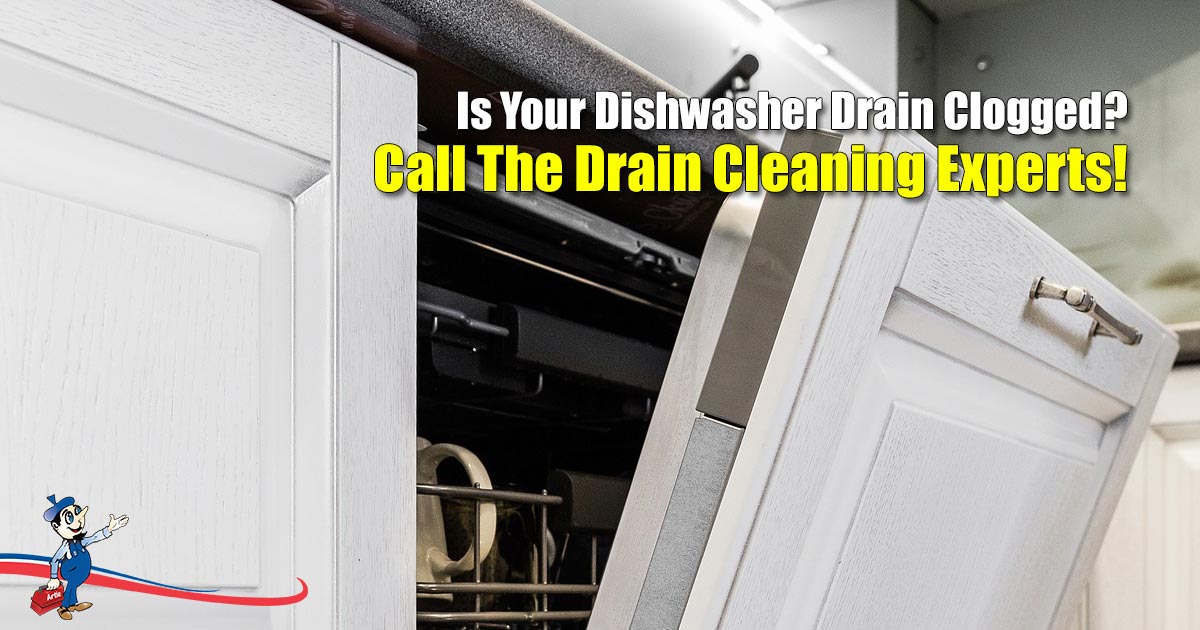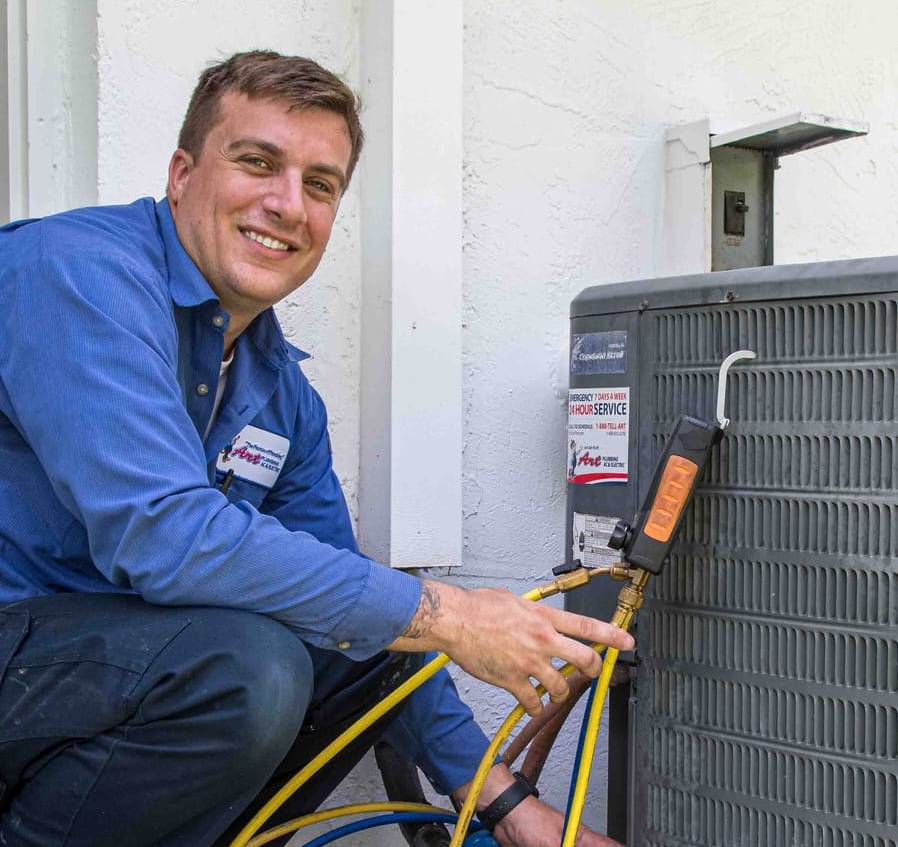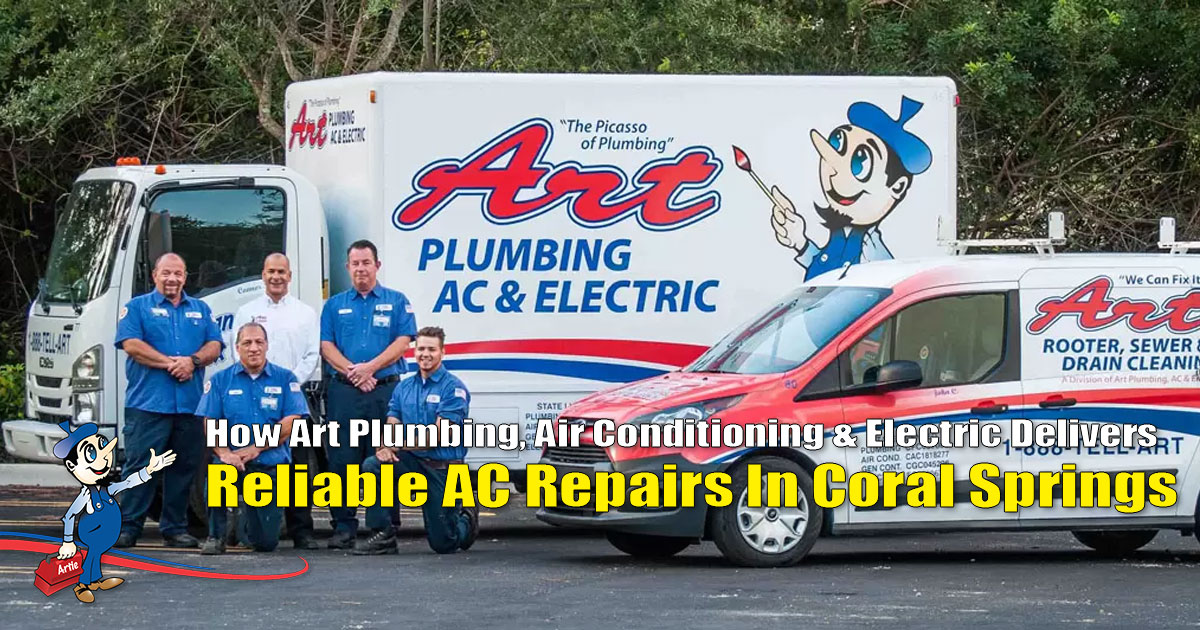Is Your Dishwasher Drain Clogged? Call The Drain Cleaning Experts!

South Florida residents can anticipate glitches that affect drainage in home plumbing and large appliances, specifically if the dishwasher is connected to a mainline. This article will guide you in what to look for if your dishwasher drain may be clogged and when it’s best to contact the drain cleaning experts at Art Rooter, Sewer & Drain Cleaning.
The Modern Dishwasher
The first mechanical dishwasher was registered in the U.S. in 1850 by Joe Houghton. The device was constructed of wood and operated by a hand-crank that sprayed water onto the dishes. In Europe, the first domestic dishwasher was introduced by German manufacturer Miele in 1929. By the post-war boom, dishwashers had become a home appliance primarily accessible to the upper class. During the 1970s, with changes in family structure and more women entering the workforce, there was a greater demand for affordable appliances.
Most dishwashers today are designed with internal monitoring systems that alert you to a malfunction or drainage issue. Contemporary models are also manufactured with enclosed water-recycling systems for energy and water conversation. Since 2012, over 75% of homes in the U.S. and Germany had dishwashers installed.
Function and Operation
Automated dishwashers run at temperatures that average between 149–160 °F (65–71 °C) and sanitation is achieved by the use of a booster heater that operates at a temperature of 180 °F (82 °C). There are portable units that hook up to your kitchen sink or dedicated, direct install models that connect to your sewer main.
Dishwashers function by using a mixture of water and detergent, a motor-operated pump for water flow, and rotating sprayers, which spray the dishes with the mixture. Once a wash cycle is completed, the water is drained, and more hot water enters the tub through an electro-mechanical solenoid valve, which starts the rinse cycle.
Generally, a chemical-based rinsing agent is used to remove hard water spots from dishware.
Drainage System Maintenance
Clogs in the drainage system usually occur in the hose and valve connection either through debris accumulation, corrosion, or wear-and-tear over an extended period. It’s recommended to schedule routine maintenance of your dishwasher every six months to a year (depending on the frequency of use). This will extend the life of your dishwasher and a technician can diagnose needed upgrades or repairs before it becomes costly. Also, keep a family routine where everyone regularly rinses dishware and utensils before loading the dishwasher to reduce debris entering the drainage system.
Drainage problems can also occur at your kitchen sink. Another cause is if the garbage disposal is defective, blocked or if the knockout plug was not removed during its installation. This can be a more complex root cause and it’s best to contact a technician to diagnose the problem.
After a storm, a blockage or break at the sewer main could also affect proper drainage, another reason to contact a pro at Art Rooter, Sewer & Draining Cleaning.
Quick Tips! What To Look For
- The dishwasher is slow to drain or standing water in the sink.
- Water pressure fluctuates and dishes are not well rinsed.
- Loud or irregular sounds during the rinse cycle.
- Back-up at the garbage disposal or kitchen sink.
- Check filters for any build-up and replace them regularly.
Art Rooter Sewer & Drain Cleaning, a division of Art Plumbing, AC & Electric, is one of Florida’s premier service providers for plumbing and drainage issues. A drainage specialist is available to assist residents in Broward, Palm Beach, and Miami-Dade Counties.



